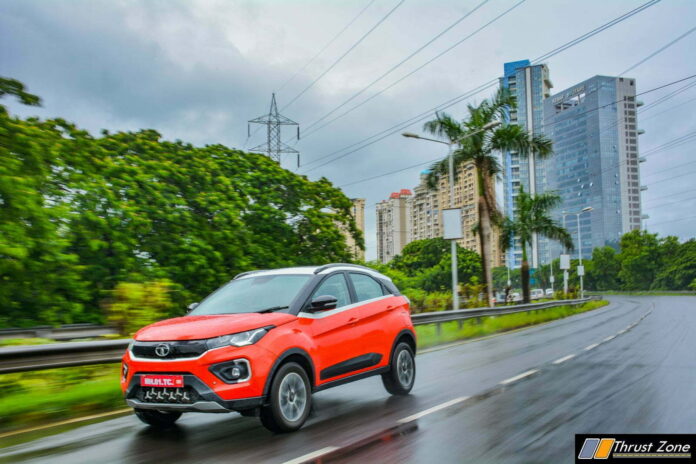Tata Motors has surpassed Hyundai Motor India to become the second-largest automaker in India in the domestic passenger vehicle market in December 2021. The Indian automaker posted its highest-ever monthly sales in December last year and the highest-ever quarterly sales in the period between October and December 2021. The company sold 35,300 units last month against Hyundai’s 32,312 units during the same period. During Q3 FY2022, Tata sold 99,002 units while selling 3.31 lakh units during the calendar year.
The strong sales come despite semiconductor challenges that have caused production constraints not just for Tata but other automakers as well. Shailesh Chandra, President, Passenger Vehicles Business Unit, Tata Motors, said, “Decade high quarterly and monthly sales – 99,002 units in Q3 FY22 (growth of 44% vs Q3 FY21) and 35,299 units in Dec ’21 (growth of 50% vs Dec’ 20) were recorded. In addition, the company also posted calendar year sales of 3,31,178 units (CY21), the highest ever since the inception of the PV Business. The overwhelming market response to Tata Punch launched in Oct ’21 is further boosting demand for the company’s “New Forever” range of cars and SUVs,” added Chandra.”
In Chennai, Hyundai also suffered from production cuts due to the chip shortage in 2021. Speaking on the volumes, Tarun Garg, Director – Sales and Marketing, Hyundai Motor India, said, “With an excellent market response for our brands, HMI has registered a healthy growth of 19.2% in CY2021 in the domestic market over last year’s sales performance. We are grateful to all our customers for their trust and love for the brand Hyundai. We will continue to drive customer delight with the introduction of smart mobility solutions pegged on the tenets of intelligent technology, innovation and sustainability.”
Tata saw a sales boost in nearly every segment, particularly the EV space. With sales of the Nexon EV picking and the arrival of the Tigor EV, the company posted its record EV sales at 2255 units while Q3 FY2022 numbers stood at 5,592 units. The penetration of EVs touched at 5.6% in overall passenger vehicle sales. It was a meagre 1.8% during the same period last year. The company’s half-yearly EV sales between April and September 2022 (9MFY2022) touched 10,000 while breaching the monthly mark of 2000 units for the first time in December 2021.
Even as the semiconductor chip shortage remains a problem, the company is confident of retaining its sales momentum. “The new Covid strain needs to be closely tracked. We will continue to work on a business agility plan and take proactive actions to mitigate these risks,” said Chandra.



